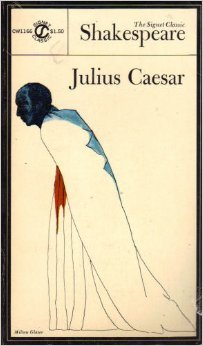 The Iliad
The Iliad
Author: Homer
Series: None
Genre: Classics, Poetry, Mythology
Published 762 BCE
Review Copy: Paperback bought new
Overall Rating: 3 out of 5
Goodreads Description
The Iliad is the first and the greatest literary achievement of Greek civilization – an epic poem without rival in the literature of the world, and the cornerstone of Western culture.
The story of the Iliad centres on the critical events in the last year of the Trojan War, which lead to Achilleus’ killing of Hektor and determine the fate of Troy. But Homer’s theme is not simply war or heroism. With compassion and humanity, he presents a universal and tragic view of the world, of human life lived under the shadow of suffering and death, set against a vast and largely unpitying divine background. The Iliad is the first of the great tragedies.
Review
The Iliad is an epic poem by Homer that is widely considered a great piece of literature, and certainly one of the oldest. It’s an epic retelling of a historical event, but with a strong emphasis on Greek mythology. The Gods are involved, and they pretty much dictate everything that happens. I can’t really say it’s non-fiction. Equally fascinating and frustrating, this was one of the most difficult things I’ve ever read.
The characters were an interesting combination of bigger than life personalities and gods. The gods had great influence on the actions of the characters, so they didn’t act entirely of their own free will. Many of the characters were extremely strong-willed and very stubborn. So stubborn that they were blinded by it. Achilleus, Hektor, Odysseus, Agamemnon, Priam, and Patroklos are featured heavily in the story, and I have to say that they all had one thing in common: personality. There was very little difference between them. Well, I shouldn’t go that far. Achilleus is a great warrior that everyone fears and no one can defeat. Odysseus (who is the main character in Homer’s followup The Odyssey) is also a great warrior who no one seems to be able to beat. The king, Agamemnon, is also a great warrior that no one has defeated. Do you see a pattern here? The greatest warriors seem untouchable. Hektor, who was one of the Trojans, was the top warrior for them, and again, nearly impossible to defeat. The key here are the gods. They pretty much decided who lived and who died. They played with their lives. They seemed petty and childish. Sometimes, I felt like there were no actual adults, but just a bunch of schoolyard bullies.
The story is a pretty simple one. Mostly battle. Back and forth battle. One side gains an advantage, then the gods decide to give the other side an advantage. There’s very graphic description of the battles, and we learn exactly how each person died, their name, their family history and status, and who killed them. There’s even an entire chapter dedicated to listing the names of the ships, where they’re from, who is on each ship, their family histories, their status, and so on. It’s a huge info dump. And it was easy to get distracted from the story, because there was a lot of repetition. Don’t get me wrong, the story was interesting, it just took a lot of dedication to keep reading.
The language used was the most difficult aspect of this poem. The paragraphs were long, the sentences filled with adjectives describing characters, such as “god-like,” “of the shining helmet,” “son of whatshisname,” and so on. And they were repeated so often, it was overkill. But this was Homer’s style, and it was poetry, not prose. That’s part of what makes it difficult to judge. Poetry is not usually read like a story, but this was a story. The dialogue in The Iliad was incredibly unnatural. No one spoke in conversation, only monologues. They made speeches to each other in place of conversation. And when one person wanted to give someone else a message, the messenger repeated everything word for word.
It’s a difficult book to rate because it’s from a time when writing style was totally different. The story was epic. It was a massive battle with a huge amount of detail. The writing style is difficult to read, so it took me a long time to get through all of it. I had no sympathy for any character, because they were not written in a way that gives us any kind of sympathetic feelings toward them. I went into it not realising how much the gods would factor into it. I felt like there was no unpredictability. We knew where it was going because Zeus said how it was going to go.
But how do I rate this? I’ll have to give it a 3 out of 5. It’s good, but only read this if you are willing to go through a literary experience you’ve never been through before. And no, there is no Trojan Horse in this story. That’s The Aeneid, and apparently only referred to in The Odyssey. Anyway, it takes place after this story ends.



